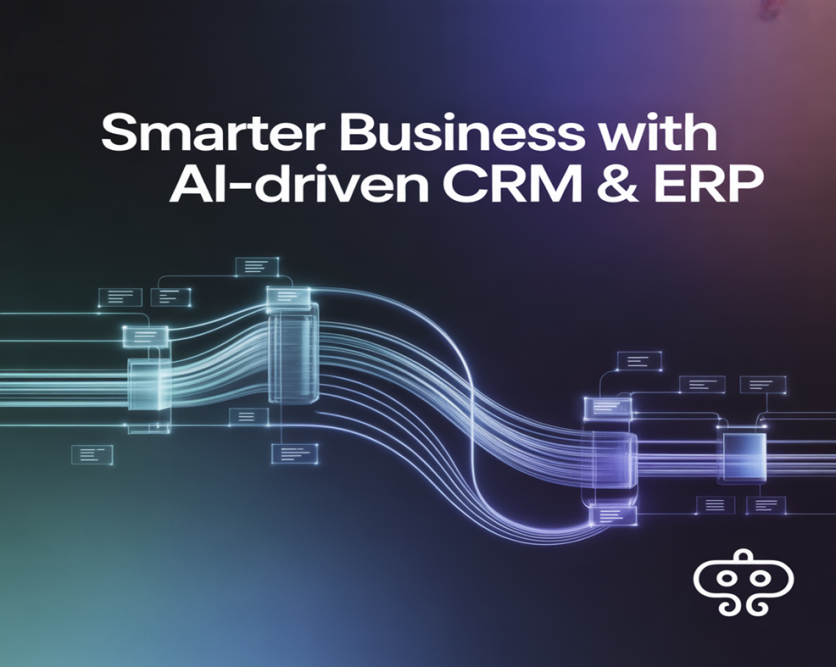
In a recent scholarly article, Siva Prasad Sunkara offers an incisive exploration of how Artificial Intelligence (AI) is revolutionizing Customer Relationship Management (CRM) and Enterprise Resource Planning (ERP) systems. Drawing on years of technological leadership, he provides a clear roadmap for how AI is reshaping business strategy and operations.
From Reactive to Predictive: The Operational Shift
Businesses are moving from simply managing data to making intelligent predictions with it. AI-integrated CRM and ERP platforms are driving this transformation, enabling organizations to forecast customer behaviors and resource needs with remarkable precision. No longer limited to tracking and reporting, these systems now actively guide strategic decisions. The global market for AI-enhanced CRM is set to reach $51.5 billion by 2028, a clear signal of its growing influence.
Industry-Wide Momentum and Measurable Gains
The adoption of AI in business systems is not uniform but is rapidly gaining ground across various sectors. Financial services lead the charge, followed closely by healthcare, retail, manufacturing, and even logistics. In each industry, AI unlocks specific value—from fraud detection and claims processing to inventory optimization and predictive maintenance. He highlights that 76% of organizations are either already using or planning to implement AI in their CRM and ERP systems. The impact? Enhanced customer satisfaction, more accurate sales forecasting, reduced operational costs, and significantly streamlined business operations and workflows across departments.
Foundations of Intelligence: Technologies at Work
Modern AI-driven platforms are built on powerful technologies like machine learning, natural language processing (NLP), and advanced data integration. According to the graphic on page 5, these elements form a technological ecosystem where CRM and ERP systems interact through an AI enhancement layer. Machine learning enables pattern recognition, while NLP makes these systems accessible to users with natural language interfaces. Data governance and robust cloud infrastructure ensure these capabilities are scalable and secure.
Personalization and Precision in CRM
AI is redefining CRM through predictive lead scoring and hyper-personalized customer experiences. By analyzing customer interactions across platforms, businesses can identify which leads are most likely to convert and how to engage them best. AI-driven personalization engines adapt in real-time, boosting digital engagement by up to 25%, as highlighted in section 4.2. Virtual assistants and automated service agents, powered by conversational AI, now resolve up to 70% of routine inquiries, improving both efficiency and customer satisfaction.
ERP: Intelligence at the Core of Operations
ERP systems have evolved from traditional transactional tools into intelligent, adaptive platforms. Inventory management has become a data-driven discipline, leveraging machine learning to predict demand fluctuations, optimize stock levels, and minimize waste. As shown in the visual on page 8, AI applications in ERP systems reduce operational costs while improving accuracy in financial forecasting, asset maintenance, workforce planning, and resource allocation. Deep learning models monitor equipment health, enabling predictive maintenance, while NLP enhances financial operations through intuitive, natural language-driven reporting, analysis, and real-time decision-making across departments.
Strategic Implementation: Phases and Frameworks
Successful deployment of AI-enhanced business systems requires more than just technology. He emphasizes a phased implementation strategy that begins with targeted use cases and expands across the enterprise. Organizational readiness—particularly change management and stakeholder alignment—is essential. According to Table 2 on page 9, structured implementation methods yield success rates 3.4 times higher than ad hoc approaches, while robust data governance significantly reduces implementation effort in later phases.
Navigating Compliance in a Regulated World
As AI becomes increasingly central to business operations, regulatory scrutiny is intensifying across global markets. Nearly 60 jurisdictions are enacting AI-specific regulations, with a strong focus on transparency, fairness, ethical usage, accountability, and data security. Companies must now adopt "compliance-by-design" methodologies, embedding governance, risk management, and audit mechanisms throughout the AI development and deployment lifecycle. He advises that proactive governance practices can lower remediation costs by up to 70%, while also turning regulatory challenges into strategic, long-term competitive advantages that enhance stakeholder trust and ensure sustainable innovation.
In conclusion, Siva Prasad Sunkara's work paints a compelling picture of a future where CRM and ERP systems are not just tools but strategic partners. The integration of AI enables businesses to predict, personalize, and perform at unprecedented levels. As digital transformation accelerates, organizations that embrace these innovations—and align their strategies accordingly—will not only adapt but thrive. With visionaries like him charting the path forward, the future of intelligent business is already taking shape.
ⓒ 2026 TECHTIMES.com All rights reserved. Do not reproduce without permission.





